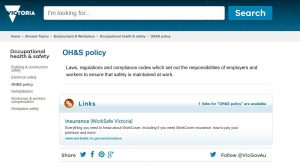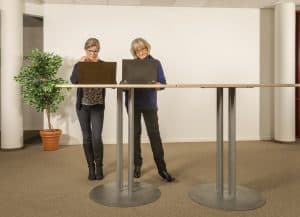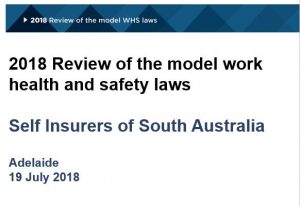 If you ask a lawyer for advice about any issue related to occupational health and safety (OHS) their first piece of advice is likely to be “write a policy”. There are good legal reasons for advocating a policy, but policies can also create major problems. Policies are both a reflection of a workplace and the base on which improvements can be created.
If you ask a lawyer for advice about any issue related to occupational health and safety (OHS) their first piece of advice is likely to be “write a policy”. There are good legal reasons for advocating a policy, but policies can also create major problems. Policies are both a reflection of a workplace and the base on which improvements can be created.
Search for OHS policy guidance from the Victorian Government and it takes you to a page that describes an OHS policy as
“Laws, regulations and compliance codes which set out the responsibilities of employers and workers to ensure that safety is maintained at work.”
NO it’s not. The page also directs you to a WorkSafe page about insurance!
WorkSafe Tasmania

 The
The 
 Below is the list of occupational health and safety (OHS) issues for the next three years, put to the Australian Council of Trade Unions and passed, at its
Below is the list of occupational health and safety (OHS) issues for the next three years, put to the Australian Council of Trade Unions and passed, at its 
